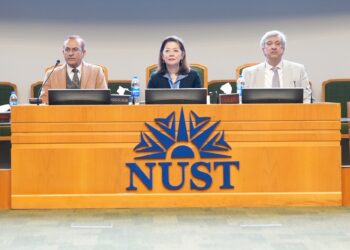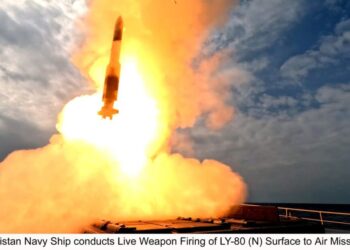A suicide bomber targeted the BNP-M rally in Mastung, but Akhtar Mengal and their supporters remained unharmed. Tensions rise as protests continue.
Akhtar Mengal, BNP-M Rally Unharmed in Mastung Blast:
A suicide bomber detonated himself in a startling occurrence that happened close to a Balochistan National Party-Mengal (BNP-M) gathering in Mastung. Thankfully, Sardar Akhtar Mengal, the leader of the BNP-M, and other rallygoers were unharmed. Mengal and his supporters were marching into Quetta to protest the arrests of Dr. Mahrang Baloch, the leader of the Baloch Yakjehti Committee (BYC), and other activists when the attack occurred. Mengal and his party have pledged to carry on with their nonviolent protest despite the tension.
Long March from Wadh to Quetta:
In protest of police crackdowns on sit-ins and the incarceration of Baloch leaders, the BNP-M organized a lengthy march from Wadh to Quetta. At nine in the morning on Friday, fans and political activists from various areas joined the rally. However, due to security concerns, the Quetta government had refused to allow the march to enter the city.
According to BNP-M, more than 250 of its employees were detained close to Mastung as the march went on. The gathering persisted in its resolve to voice its opposition to alleged human rights abuses in Balochistan despite these obstacles.
Suicide Blast Near BNP-M Rally:
The blast occurred at around 1 PM near the BNP-M rally. According to official reports, a suicide bomber was spotted by security personnel near Luck Pass. When Levies officials tried to stop him, he attempted to flee before blowing himself up. Fortunately, there was no loss of life in the explosion, and Mengal immediately reassured supporters that he and all party workers were safe.
However, Mengal later claimed that four rally participants were injured in the explosion. Speaking to his supporters, he accused the state of trying to suppress their peaceful movement rather than protecting citizens from actual threats.
Security Measures and Government Response:
Following the attack, Balochistan Chief Minister Sarfraz Bugti strongly condemned the bombing. He promised a thorough investigation and assured that security measures would be strengthened.
“Terrorism, no matter who it is directed against, is condemnable!” Sarfraz Bugti
Security forces quickly increased patrols and checkpoints near the rally site, deploying additional Levies personnel to prevent further incidents. At the same time, the provincial government continued its attempts to negotiate with BNP-M, urging Mengal to call off the march and instead engage in dialogue.
Mengal’s Response and Continued Protest:
Mengal persisted in his demands despite the blast. He said to supporters in Mastung, No group poses a threat to us. The state is the source of all threats we may face. He further said that in order to quell criticism, the administration was purposefully making matters worse. Mengal also took issue with the media blackout, saying that news outlets were instructed not to report on the demonstration.
“We will return after releasing the women who were arrested. That’s our straightforward response. In exchange for their release, I am even willing to give up my arrest.“
Many Baloch activists, who have long accused the state of stifling their voices rather than addressing their concerns, were deeply frustrated by his forceful remarks.
Allegations of Negligence:
Mengal also criticized security agencies for their slow response to the attack. He pointed out that
- The suspicious individual was spotted before the blast, yet authorities failed to take immediate action.
- After the explosion, no security officials arrived to identify the attacker.
- The march could have remained peaceful if authorities had allowed BNP-M to enter Quetta instead of blocking their way.
He accused the state and security forces of being afraid of a large gathering of unarmed people demanding their rights.
“Those who make grand claims about democracy should reflect on today. Peaceful protesters and political parties fighting for human rights are not welcome in Pakistan’s mainstream politics.“
His remarks indicated growing concerns among Baloch activists that their non-violent struggle for justice was being ignored.
Struggle for Justice and Human Rights:
Concerns such as extrajudicial executions, enforced disappearances, and political repression in Balochistan have been brought up by the BNP-M. Many Baloch activists think the government is attempting to stifle peaceful movements rather than addressing their calls for justice.
These frustrations were mirrored in Mengal’s remarks. He cautioned that the Baloch youth may resort to different tactics to get their opinions heard if nonviolent demonstrations are still suppressed.
“We cannot demonstrate in support of missing people. We are not permitted to speak up for our sisters and mothers. The government is telling young people to forgo nonviolent means and take a different route.
Impact of the Attack on Balochistan’s Political Climate:
The suicide attack has raised fresh concerns about security and political stability in Balochistan. Key points include:
- Increased tensions between Baloch activists and the state.
- Security concerns for political rallies and movements in the region.
- Government’s failure to ensure peaceful resolution through dialogue.
- Media blackout on Baloch protests, raising questions about press freedom.
The incident also raises doubts about the state’s priorities. Whether it is genuinely interested in addressing the grievances of the Baloch people or simply wants to maintain political control over the province.
Final Thoughts:
The increasing instability in Balochistan has been exacerbated by the suicide bombing close to the BNP-M rally in Mastung. The attack represents the perilous political environment in the province, even if Akhtar Mengal and his supporters were lucky to escape unharmed.
The fight for Baloch’s rights is far from done, as demonstrated by Mengal’s determination to call off his demonstration. The direction of the political movement in Balochistan would depend on whether the government decides to hold substantive talks or to keep up its repression. One thing is certain for the time being: the voices calling for justice will not be readily silenced.

























